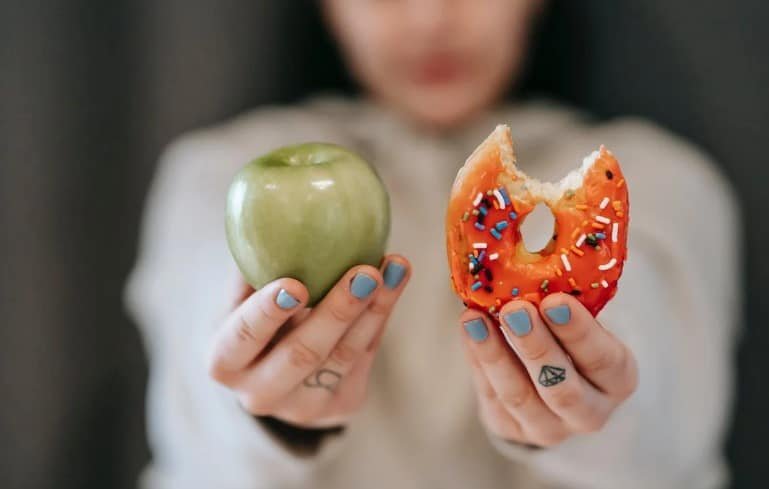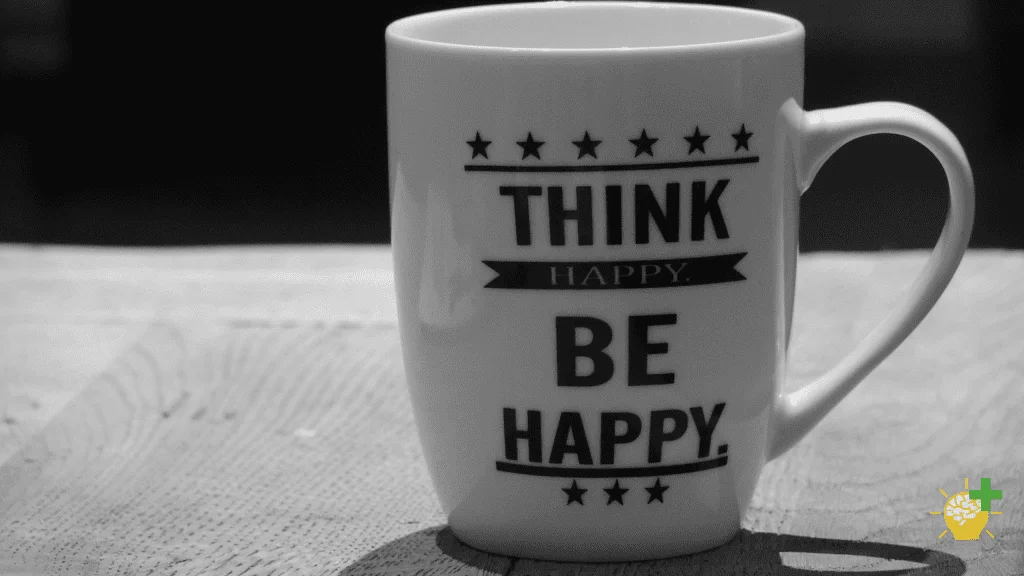Food nourishes the body, and eating should be an enjoyable activity. Eating satisfies your taste buds and cravings and fills your stomach. But that’s not always the case for everyone, at least not those with eating problems or food anxiety.
In an earlier post, I shared some useful tips on overcoming swallowing anxiety. You can read all about it here. But what if you experience anxiety not just when you swallow but when you eat? How do you deal with this anxiety?
This article is for you if you’ve always wondered, “Why do I get anxiety when I eat?” Here’s everything you need to know about the likely causes of eating anxiety and how to manage it.
What Does Eating Anxiety Look Like?
Let’s get something clear right off the bat.
It is normal to change your eating habits from time to time. Sometimes you might try to eat healthier, and at other times you have cravings and eat more than usual. Still, there are times when you simply don’t have as much appetite as before.
These are all part of normal living, and everyone spends some time thinking about the different foods they eat as well as their eating pattern.
However, when the thought of food and your eating habit becomes a constant source of worry, you might have eating anxiety.
Anxiety about food and eating can make you worry excessively about weight gain, calories, and the effects of different food types on your body. It might lead to food avoidance in severe cases.
Some people with eating anxiety may be concerned about choking and allergic reactions if they eat certain food types. They may even worry about the texture of the food they eat.
Concern about certain food is okay, but it can become unsafe for your health and overall well-being when this worry interferes with your quality of life or daily functioning.
Why Do I Get Anxiety When I Eat: Causes and Impact on Quality of Life

A combination of several factors can cause anxiety about food and eating. These factors include:
- Fear of the changes food will cause to your body.
- Fear of gaining weight.
- Worrying about being judged or negative self-talk about your appearance because of your eating habit or food choices.
- Perfectionism and unrealistic expectations.
- Self-esteem issues.
- Anxiety disorder associated with body image (body dysmorphic disorder)
- Phobia of some food types.
- Trauma or prior experiences around food, especially in childhood.
- Pressure from peers and society about appearance.
No matter what causes your anxiety symptoms around eating and food, it can affect your quality of life in many ways. You might feel guilty for eating certain amounts of food or ashamed for eating some foods. This can lead to self-bashing and depression, especially if you think eating a particular food will negatively affect your body.
You may also discover that eating anxiety makes accepting invitations to social events hard because you want to avoid eating in public. In other words, the eating problem can limit your social interaction. Traveling at a moment’s notice or spontaneously going to new places can cause additional stress for you.
You might also experience teasing and bullying about eating and food. It is not uncommon for people with severe food anxiety and eating problems to give up the things they enjoy doing just to avoid contact with family and close friends who reference their eating habits and how they impact their health and physical appearance.
How Do I Know I Have an Eating Disorder or Problem?
Not everyone with an eating problem or eating disorder is overweight or underweight. However, you should consider getting help if your issue with food and eating leads to the following behaviors:
- Only consuming foods with certain textures
- Increasing pickiness about what you eat
- Decreased interest in food or increased lack of appetite
- Fear of swallowing or choking
- Overly restricting food types or specific foods
- Obsession with body image or weight
- Excessively concerned about calories
- Becoming tensed when thinking of what to eat
- Stomach-churning
- Eating too little food or not eating at all
- Grumpiness or irritability
- Signs of malnutrition
Why Do I Get Anxiety When I Eat: Possible Solutions

Having anxiety when you eat can lead to other physical and mental issues. Thankfully, there are few ways to solve the problem, including seeking medical care. This involves medications and treatments and is particularly necessary if you have signs of serious malnutrition.
Therapy is also another effective way to deal with anxiety disorders when you eat. Consider seeing a psychotherapist for talk therapy or family-based treatment. It might also be beneficial to join support groups, where people with similar issues share their experiences and solutions that helped them and their mental health.
If you are concerned about the ideal amount of food and nutrients you should be consuming, consider getting counseling from a nutritionist or dietician. They can help you determine what’s best for you depending on your age, size, circumstance, and current health status.
While these methods work well, you can use some self-help solutions to manage the problem. You might want to try the following:
Limit Exposure to Triggers
Identify the things that usually make you experience anxiety symptoms around food. Some triggers may even cause emotional eating or a binge eating disorder.
For example, do you get anxiety or a panic attack when you eat after seeing certain images on social media or magazines? Do you experience any kind of physical symptom related to this?
Remember if watching a TV program related to food or eating makes you feel uncomfortable about your current eating habits or pressures you to maintain a certain body shape.
Are you self-conscious when you interact with certain people? Perhaps they criticize your looks and make hurtful comments about your eating habits?
Of course, it is okay to:
- Want a great body
- Eat healthily
- Watch your weight
But whatever you do, try to avoid or minimize interactions with people and things that make you worried about what you eat and how you look.
Remember that supportive friends and associates will contribute positively to your life and offer suggestions that uplift you, not put you down.
Write Positive Things About Eating
Journaling can help you shift your focus away from the things that bother you about eating to what you truly enjoy about food and eating.
Try to make journal entries as often as you can. Include positive experiences in your journal entries, such as the different nutrients you provide for your body, the enjoyable experience of tasty foods, the recipes you enjoy, and foods you look forward to trying.
Recognize Negative Self-Talk and Redirect It
Anxiety is often linked to negative self-talk, so you should pay attention to the thoughts that run through your mind.
What are you saying to yourself? Are you constantly telling yourself that something is wrong with you? Are your thoughts always about not being physically fit, sexy, or muscular?
Sometimes, we decide to follow a diet program, but as soon as we slip and make mistakes, we berate ourselves and say things like, “I’m such a failure!”
Recognize these unhelpful thought patterns and interrupt them with something more helpful. In addition to helping you overcome negative self-talk, mastering the art of redirecting your thoughts to more positive ones can help increase your confidence.
Practice Self-Care
While it might not seem obvious, self-care can help you manage anxiety around food and eating.
Think about it this way.
Loving yourself, despite your flaws, can help you build a positive self-image. Other people’s criticisms or hurtful teases will hardly make you feel bad about yourself if you have a strong positive opinion about your body.
Here are a few ways to practice self-care:
- Treat yourself to a soothing massage
- Take a relaxing bath
- Spend time in silence or take a walk in nature
- Eat healthily and thoroughly enjoy your meals.
Final Thoughts
Remember to take baby steps when making life changes relating to food choices, disordered eating, anxious feelings, and eating patterns. You’ll see better results if you make one or two healthy choices and stick with them until they become habits before introducing another change.




